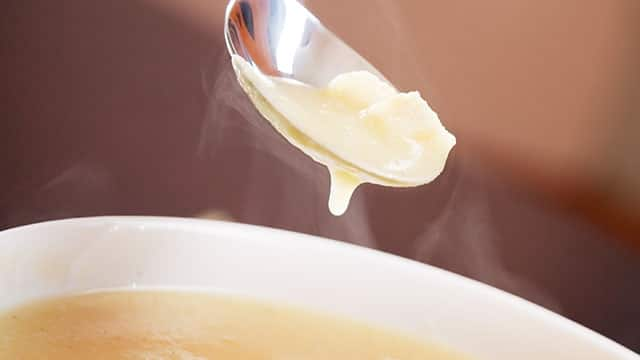What Are the Symptoms of Tooth Cupping?
Early tooth cupping symptoms are mostly aesthetic, and you may even be able to feel the indentations with your tongue.
If you try examining your teeth in the mirror, you may notice it's hard to see all of your teeth properly. That's one reason regular dental checkups are so important, so your dental professional can closely examine, identify, and track any erosion or other changes in your oral health that you may not be able to identify early on your own. If erosion goes beyond dental cupping, you may experience more severe damage, sensitivity, pain, infection, and potentially even tooth loss.
Learn some tips for practicing good oral hygiene.
What Are the Causes and Risk Factors of Tooth Cupping?
Acidic damage can cause cupping in the thin outer covering of your teeth (enamel) and dentin (the layer underneath the enamel). According to an article published by the American Dental Association, erosion can stem from internal factors (intrinsic erosion) or environmental and lifestyle choices (extrinsic erosion).
Intrinsic erosion is most often a result of acids in your mouth consistently from gastroesophageal reflux or excessive vomiting from bulimia or alcoholism. Pregnancy can also cause acid reflux, but it's unlikely to occur regularly enough to be the sole cause of cupping in teeth.
Extrinsic causes of erosion typically stem from lifestyle choices, like:
- Beverage Choices - Soda, energy drinks, alcohol, and even fruit juices can cause erosion.
- Acidic Foods - Acidic foods like citrus fruits can also contribute to the erosion of tooth enamel.
- Medications - Some medications can cause dry mouth, which can lead to tooth decay. Inhalers can contribute to erosion, so it's recommended to rinse your mouth and brush your teeth after using your inhaler.
- Environmental Causes - Some occupations with exposure to airborne acids (for example, battery, fertilizer, or munitions manufacturing) have been shown to increase the risk of tooth erosion.
- Tobacco Products - Chewing tobacco can have adverse effects on tooth enamel, the health of your gums, and your overall health.
- Hard Drug Use - Hard drugs like cocaine and meth are also known to wear away enamel and lead to dry mouth and tooth decay.
If you or someone you know has a drug or alcohol addiction, or an eating disorder, talk to your doctor or a counselor about finding support. These are difficult situations to overcome, but there are people who can help.
Tooth Cupping Treatment
In severe erosion cases, your dental professional may recommend restoring your teeth by filling the eroded area with tooth-colored material (a process called bonding) the same way a chipped tooth is often repaired. If your damage is deemed too extensive for bonding, you may need a crown or a series of crowns.
Learn more about bonding or dental crowns and tooth bridges.
Tooth Cupping Prevention
Some tooth wear is unavoidable – you use them every day. But there are some kinds of damage, like erosion and tooth cupping, that you can prevent by avoiding the above risk factors to your best ability and practicing good oral hygiene.
Be sure to brush at least twice a day, and don't forget to brush your tongue. Consider using other helpful products like an antimicrobial mouth rinse and tongue scrapers. And be sure to see your dental professional for regular appointments. By visiting your dental professional regularly, you are better positioned to catch erosion early so you can effectively treat any adverse effects and maintain oral health that makes you smile.
Oral Care Center articles are reviewed by an oral health medical professional. This information is for educational purposes only. This content is not intended to be a substitute for professional medical advice, diagnosis or treatment. Always seek the advice of your dentist, physician or other qualified healthcare provider.
ORAL HEALTH QUIZ
What's behind your smile?
Take our Oral Health assessment to get the most from your oral care routine
ORAL HEALTH QUIZ
What's behind your smile?
Take our Oral Health assessment to get the most from your oral care routine















